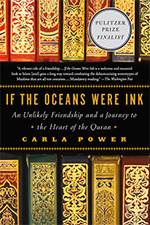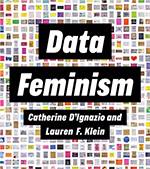OnPoint Subscriber Exclusive

Courtney C. Radsch
Says More…
This week, Project Syndicate talks with Courtney C. Radsch, Advocacy Director at the Committee to Protect Journalists.
Project Syndicate: In your latest PS commentary, you condemn the police who have “assaulted, arrested, and shot at” journalists covering the unfolding protests against systemic racism and police brutality in the United States. The American Civil Liberties Union (ACLU) of Minnesota has since filed a class-action lawsuit on behalf of journalists who were targeted and attacked by police while covering the protests there. To what extent can this or similar lawsuits provide “swift and meaningful accountability”?
Courtney C. Radsch: Lawsuits are a crucial tool in the effort to hold police accountable for violence against journalists covering the historic protests now underway. They can lead to concrete changes in law and practice, and set new precedents clarifying what is and is not acceptable behavior in a democracy. The ACLU’s lawsuit can do all of that, and deterring police from using violence against journalists in the future undoubtedly amounts to meaningful accountability. But lawsuits are rarely swift. That is why other, more immediate steps must be taken to identify and punish violent officers, and to ensure that crowd-control tactics do not end up harming journalists (or protesters, for that matter).
Law-enforcement officers need appropriate training, vetting, and support, so that they fulfill their obligation to uphold the law, including the rights enshrined in the US Constitution’s First Amendment, which protects freedom of speech and of the press, and the right of the people peaceably to assemble. Journalists must be able to report freely on events, without fear of injury or reprisal.
Radsch recommends
We ask all our Say More contributors to tell our readers about a few books that have impressed them recently. Here are Radsch's picks:
-

If the Oceans Were Ink: An Unlikely Friendship and a Journey to the Heart of the Quran
by Carla Power
A beautifully written exploration of the Quran and Islam, viewed through the eyes of a Western journalist who spent a year exploring them – in all their complexity and simplicity – with a sheikh. Whether you’re a religious scholar or have never read a religious text, the questions, debates, and interpretations that are woven through Power’s account dismantle stereotypes about a monolithic Islam and will impel you to think more deeply about your own beliefs.
-

Data Feminism
by Catherine D’Ignazio and Lauren F. Klein
This thought-provoking book delves into the power dynamics shaping data science and data ethics, compelling the reader to reconsider what they think they know and how they know it. With stunning visualizations drawn from multiple disciplines, and footnotes that transcend the canon, this is a must-read for journalists, academics, and anybody else seeking to build a more just and equitable world.
From the PS Archive
From 2020
Radsch highlights a disturbing trend of targeted violence by police against journalists covering protests. Read more.
From 2018
Radsch shows how official measures to contain the spread of misinformation are victimizing legitimate journalists. Read more.
Around the web
Last March at the Camden Conference, Radsch gave a talk on how to ensure press freedom in an age of information warfare. Watch the video.